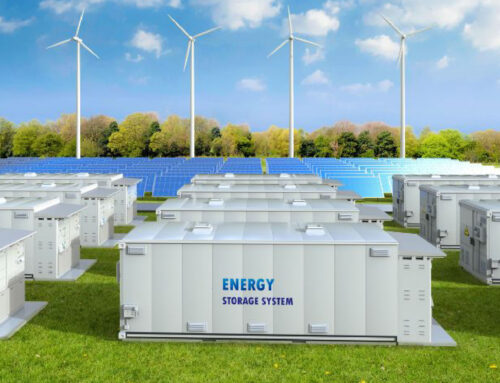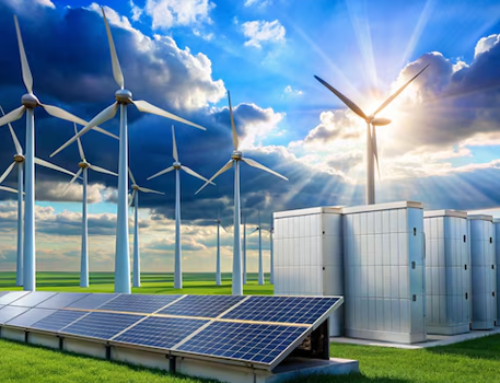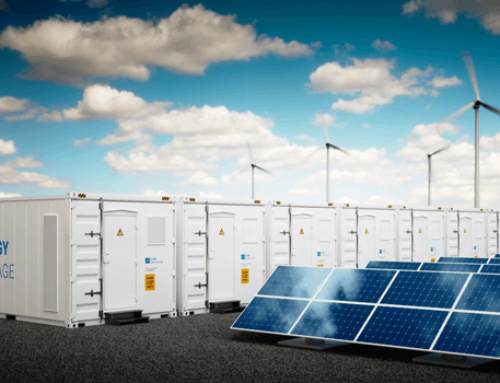
Uttar Pradesh has approved a new Solar Policy called the Uttar Pradesh Solar Energy Policy 2022, with a target to produce 22,000 MW of solar power by 2026-27.
Uttar Pradesh New and Renewable Energy Development Agency (UPNEDA) will act as the nodal agency for implementing this proposed policy. Moreover, the solar energy produced will be purchased by Uttar Pradesh Power Corporation Limited through its distribution companies. This exchange will be as per the Renewable Purchase Obligation (RPO) with the price determined by the regulator.
The 2017 policy had set a target of 10000 MW of renewable capacity. However, to date, only 3000 MW has been generated. Considering this, the new target for the next five years is being seen as too ambitious.
“The targets are ambitious, but all efforts will be made to achieve it because the proposed policy seeks to remove all the bottlenecks that hindered setting up of solar plants and parks in the state,” said Narendra Singh, project director, Uttar Pradesh New and Renewable Energy Development Agency (UPNEDA).
The breakdown of the new target is as follows:
| Solar Park and Utilities | 14,000 MW |
| Rooftop Installations | 6,000 MW |
| Distributed Solar Project (Agriculture Solar Pumps etc.) | 2,000 MW |
| Total | 22,000 MW |
Project Director Narendra Singh has stated that the new target would be met through mechanisms that support consumers, businesses, and developers.
The major steps that will be taken under the new policy are:
Creation of Solar Cities
Under the new policy, UP will create solar cities. These are defined as places that are expected to achieve a minimum 10% reduction in conventional electricity demand through the transition to renewable energy at the end of 5 years.
The policy also states that Ayodhya will be developed as a model solar city. If the project is a success, 16 municipal corporations and Noida city will be developed as solar cities. Solar rooftop systems will be installed on over 13,50,000 residential properties under the scheme.
Increasing Land Availability
A Land Bank, of areas that are not suitable for agriculture, will be created by UPNEDA across Uttar Pradesh. The policy emphasizes the Bundelkhand region here, as the area has vast untapped land which is uncultivable and can be used for setting up solar plants.
Additionally, as per the policy, the state government will provide government land on lease for developing solar power projects. The land will be leased at a rate of ₹15000/acre per year for 30 years.
Moreover, there is a full exemption on stamp duty on lands that are used for setting up a solar park or plant.
Solar Installations over Public Buildings
The policy proposes creating 500 MW of solar power capacity through rooftop installations over government buildings.
- 21, 000 primary schools across the state that remain without electricity, will get equipped with solar rooftop installations. Secondary schools, government colleges, technical institutions, and universities will also get covered with rooftop installations in a phased manner.
- Nagar Nigam assets are to be solarised through rooftop installations. Moreover, public institutions such as hostels and training institutions, libraries, etc will be encouraged to meet a percentage of their power needs through solar energy.
- In Anganwadi centres and schools, the state government will also promote off-grid solar systems such as solar pumps, solar power plants, and solar street lights.
Net Metering and Incentives to be Provided
To encourage rooftop solar system installations, a net metering facility will also be given to residential consumers, government-owned public sector buildings, and all educational institutions.
As per regulations by UP Electricity Regulatory Commission, this will allow them to sell the excess energy generated to the power distribution company in their area.
To encourage rooftop installation in the private residential sector, the government will provide a subsidy between Rs. 15000-30000 per consumer. This amount will be in addition to the central financial assistance provided by the Ministry of New and Renewable Energy (MNRE).
UP will also provide a capital state subsidy of INR 2.50 crore/MW to utility-scale solar projects which are set up with a 4-hr battery storage system of 5 MW capacity or above.
Solar Parks and Floating Solar Projects to be Developed
The government will promote the development of integrated and private solar parks. A ‘plug and play’ option will be given in setting up solar parks to encourage private participation.
Floating solar plants will also be developed to sell power to power distribution companies through ‘competitive bidding, captive use, and third-party sale’.’
For solar plants above 1 MW capacity, the state government will allow 100% sale of power to third parties under an open-access system.
Other Initiatives
- Exemption in the electricity duty for ten years will be given to solar energy equipment manufacturing facilities to boost domestic products.
- The policy has also proposed solar installation along six expressways with a total length of 2000 km. The capacity of the project will be 500 MW.
- Moreover, the state will set up solar cold storage to store agricultural products and increase farmers’ income.
The policy further addresses the growing climate change concerns and the need for developing renewable energy to combat the same.
“The setting up of new thermal plants and even renovation of old coal-fired plants is being discouraged for environmental issues all over the country. In such a situation, UP has to promote solar power to meet its growing electricity demand,” a senior energy department official said.
Click Here for more updates ornatesolar.com
Resource: Hindustan Times












Leave A Comment